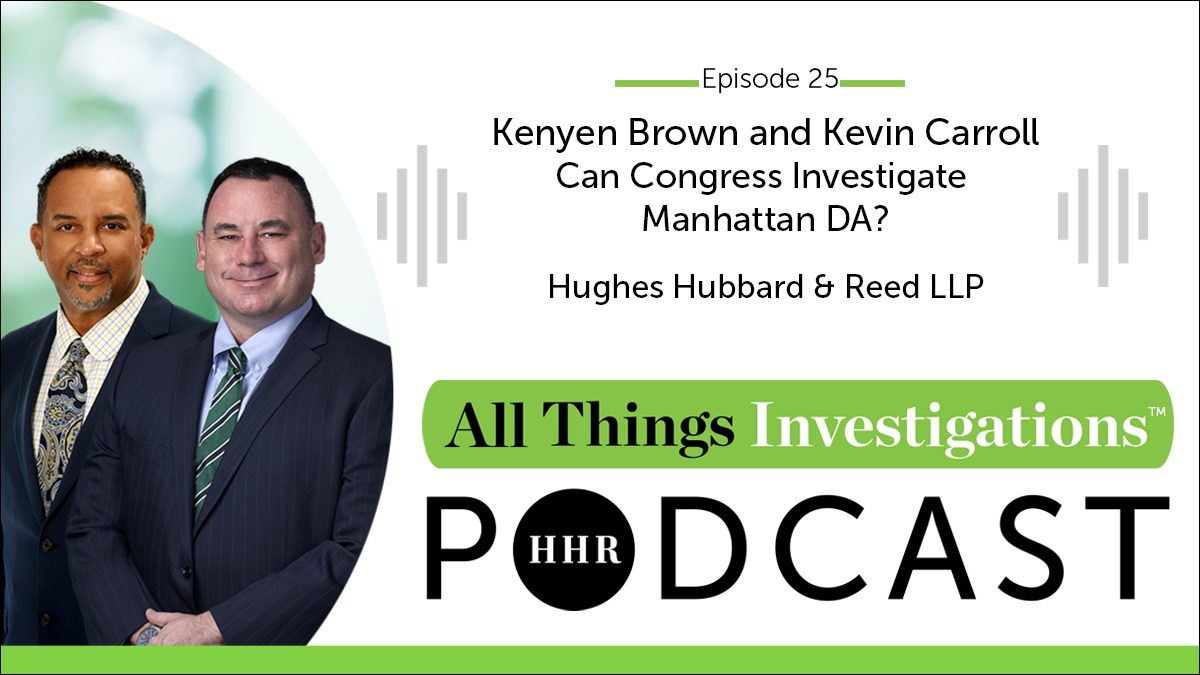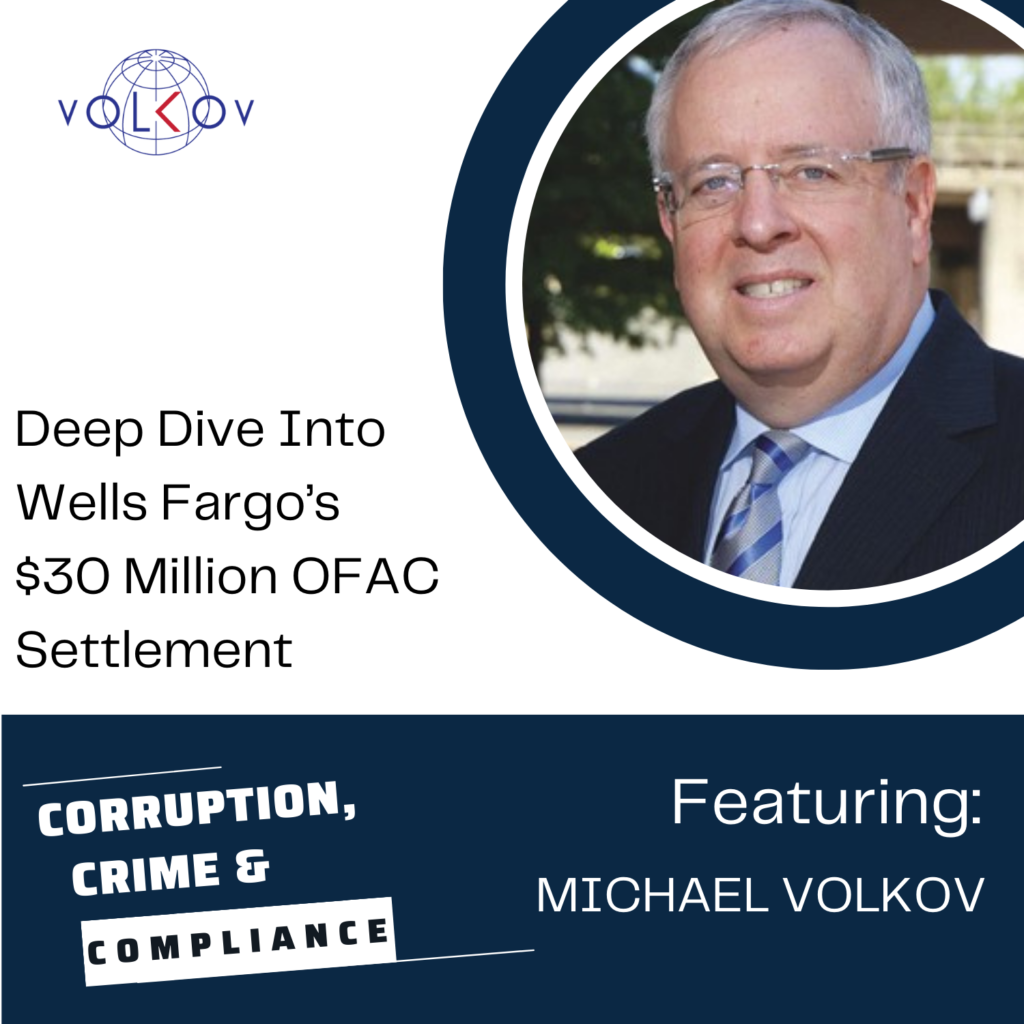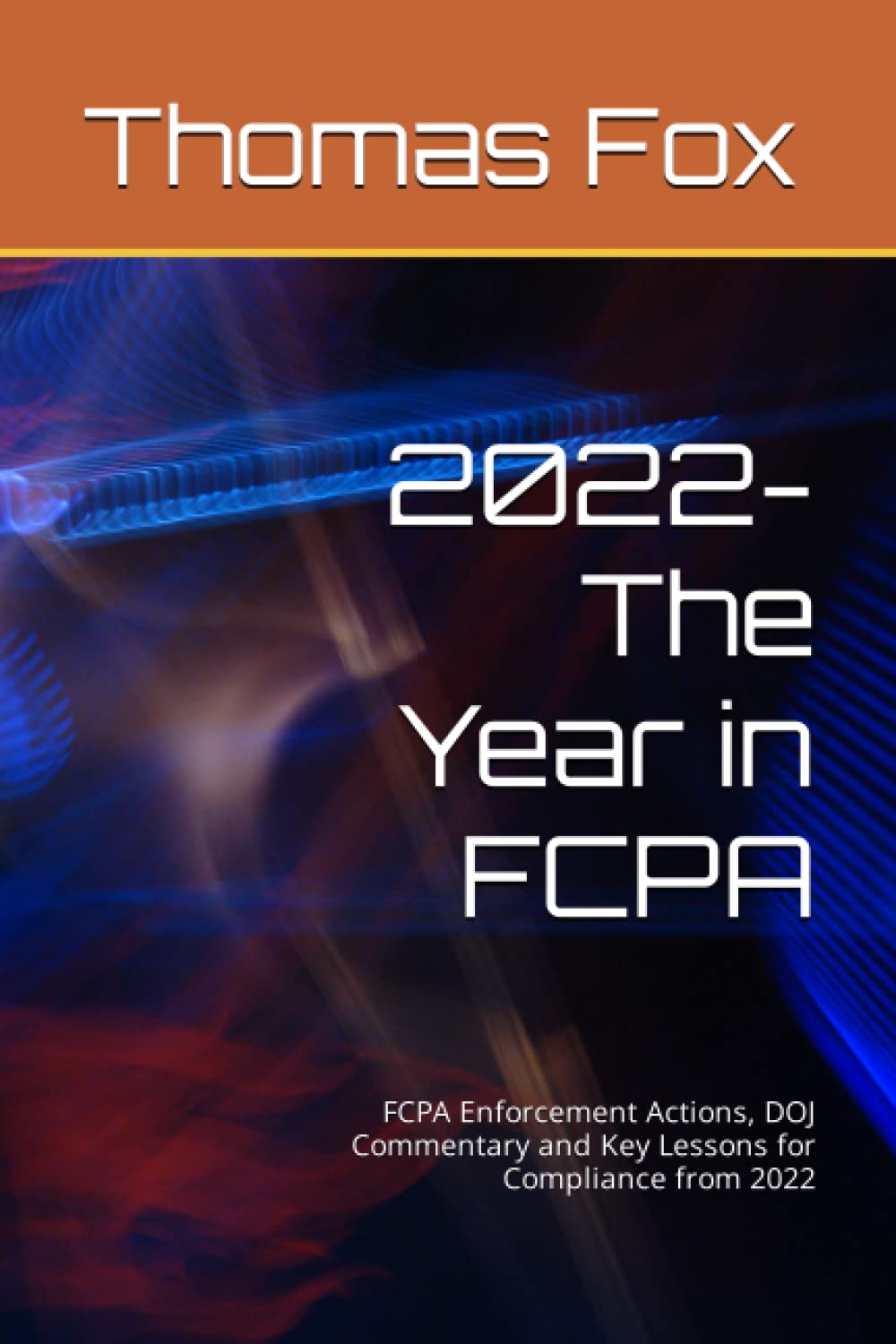
Can Congress investigate a local prosecutor’s ongoing investigation and prosecution? This is the question that has been sparked by the purported potential congressional investigation of Manhattan District Attorney Alvin Bragg. In this episode of All Things Investigations, hosted by Tom Fox, guests Kevin Carroll and Kenyen Brown share their thoughts on the unprecedented matter and discuss the potential constitutional and legal issues that may arise.
Kevin Carroll and Kenyen Brown are partners at Hughes Hubbard & Reed. Kevin is a professor, and former Assistant Attorney General for the U.S. Department of Justice. He has also served as a senior counsel to the House Homeland Security Committee. Kenyen is a former federal prosecutor and currently serves as the President of the National Bar Association.
You’ll hear Tom, Kenyen and Kevin discuss:
- Congress has never before tried to use its subpoena power or investigative powers to interfere with an ongoing investigation and prosecution by a state or local prosecutor.
- There are many potential problems with congressional subpoenas of an ongoing criminal investigation and prosecution by a state or local prosecutor. False accusations, grand jury confidentiality, and potentially ruining a meritorious criminal investigation are just a few examples.
- The congressional committee’s request for grand jury material is unlikely to be successful and would be very unpopular due to the privacy of individuals and the sacrosanct nature of the grand jury.
- Members of Congress weighing in on local prosecutions could unduly destroy the separation between the different branches of government and the respective functions of the executive and judicial branches. This could also be a recipe for disaster in terms of creating political investigations that are subject to the whims of different constituencies.
- Prosecutors’ offices regularly receive false allegations about prominent people, especially politicians, and potential investigations should remain within the confidences of that office or committee. There is potential for people to be slimed by the revelation under oath of false accusations.
- The Manhattan DA’s office is a first-class operation, staffed by some of the brightest legal minds in the country. They have responded appropriately to the congressional committee’s request by citing relevant law and their area of authority.
- Public theater is likely driving much of the debate around congressional oversight of the Manhattan DA’s investigation. The Republicans may attempt to use this issue to score political points with their base, even though the legal basis for such oversight is questionable at best.
- Alvin Bragg, the Manhattan DA, is acting properly by refusing to comply with any congressional subpoenas. He should continue to resist any attempts by Congress to interfere with his ongoing investigations.
- There may be interesting news in the coming weeks and months regarding this issue, and it is worth keeping an eye on as it unfolds.
KEY QUOTES
“Congress has never before tried to use its subpoena power or investigative powers generally to get in the weeds of an ongoing investigation and now prosecution by a state or local prosecutor.” – Kevin Carroll
“Why should Congress decide how a local prosecutor spends his resources or what the policy is on a local level? I just think that excuse is paper thin.” – Kenyen Brown
“Once you sit back and peel back the layers, I think there are generally problems with that. I think if Congress, led by the Republicans, stops to think about it, that’s probably a path they don’t want to go down. ” – Kenyen Brown
“One thing I think is in Bragg’s favor is that the Manhattan DA’s office is a really first class operation. The brightest of my law school classmates at Fordham Law School went to the Manhattan DA’s office because it offers really unique opportunities for people to get trial experience on sophisticated cases, including sophisticated financial cases, pretty early in their careers.” – Kevin Carroll
Resources:
Hughes Hubbard & Reed website
Kevin Carroll on LinkedIn
Kenyen Brown on LinkedIn







